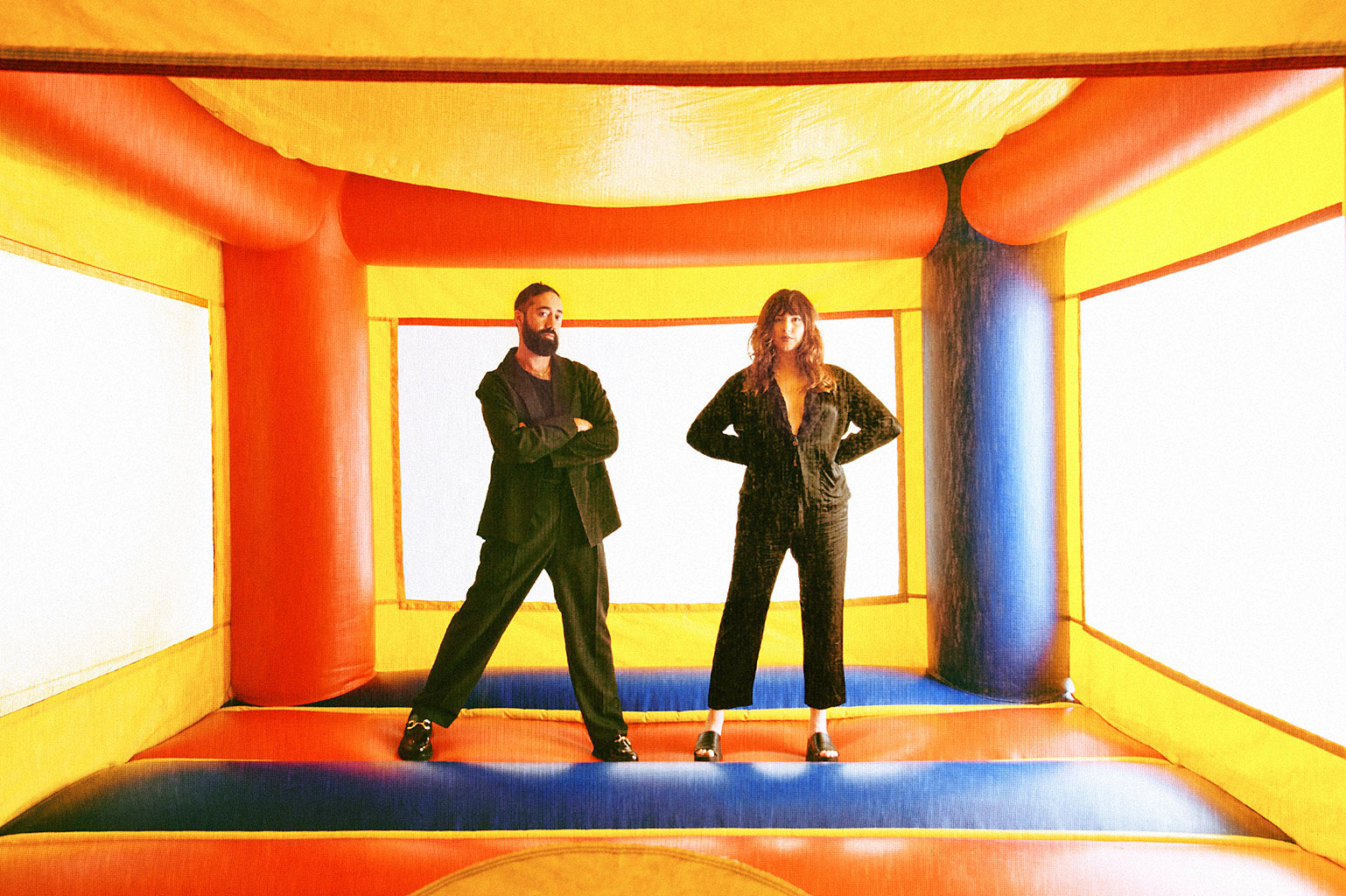
Ostensibly, for instance, Zola Jesus may seem largely defined by gothic and industrial music and fashion. The music videos for “Night” and “Clay Bodies” feature, respectively, whopping doses of black nail polish and buildings with vaulted Gothic ceilings. But it is not simply a blind adherence to that aesthetic style that shapes the musical project; just as important — if not more so — are factors such as Danilova’s schooling. She is double-majoring in French and Philosophy, and philosophical ideas lie very much at the core of Zola Jesus.
“Philosophy and any scholarly pursuits have a sort of osmotic influence on my music,” she explains. “When I’m songwriting, I’m not pulling from anything specific other than my own person, impacted by all these forces collectively.”
Listen to “Night” – DOWNLOAD MP3
Danilova is also a formally trained opera singer — a period of her life which has transformed her into a self-described perfectionist. Years later, she is still constantly struggling with her perception of herself. Zola Jesus serves as an outlet for Danilova to stray from her strict opera training, but even that freedom does not free Danilova from her self-criticism.
“I couldn’t handle having to constantly scrutinize my voice, something that I could refine to an extent but could never completely change,” reveals Danilova. “It destroyed my confidence. I never felt like I was good enough. That hasn’t changed… Whenever I perform or write a song, I feel like it can always be better… “
In a live setting, Danilova has learned to rely on the consistent help of others — a collaboration which helps ease the burden of responsibility off of her alone. When Zola Jesus first began performing, the performances were highly improvisational, featuring guest musicians who were residents of the city Zola Jesus happened to be performing in each evening. Danilova now works with the same core backing band, although the number of members fluctuates between one and four from show to show. The set listings change accordingly as well, bouncing the vibe of each show between lighter, almost R&B vibes and darker, more industrial vibes, depending on the band’s lineup.
ARTICLE CONTINUED BELOW
Danilova’s ability to create unusual pop music seems to allow her a bit of stylistic leeway during live performances. One would be hard-pressed to believe that Danilova, clad beneath a veneer of glam-goth fashion, would be openly receptive to Top 40s radio, but she is.
“I love pop music because it has to speak to everyone, and it’s always exciting to see how certain musicians weave esoteric, experimental ideas and methods into accessible pop songs,” she says. “Sometimes when I listen to the radio, I’m blown away by the things Billboard artists are getting away with — not just lyrically, but in the song structures and sounds. No one even notices.”
Not that one would likely hear Zola Jesus’ music on mainstream radio. Many of her songs are unintelligible lyrically and snuffed sonically by atmospherics and reverb. For Danilova, though, her music is still pop, and there are a variety of different routes one can take to creating pop music. The end result is the important part. “It doesn’t matter how you get there; it’s just how it hits you,” she states. “The songs need to ring throughout your brain the second after it ends. You need to be singing them in your sleep…”
While Danilova’s earlier material would be accurately described as noisy and lo-fi, Stridulum is gentler and more refined in its delivery. Danilova shuns expectations by approaching her musical project with a basic philosophical idea: to create art which has never been created before. She has a remarkably optimistic view on the future of music, and rebels philosophically against the concept that truly novel art is no longer possible in this day and age of mass creation.
“There are plenty of people doing completely novel, transgressive things, but no one knows because it is too esoteric or inaccessible,” states Danilova. “I believe [that] artistic apathy is stunting our society [from moving] forward… But things have changed; things will continue to change. It’s just a matter of being able to accept new ideas on a massive scale, which I think is our bigger problem.”
The future of Zola Jesus is undeniably full of growth and change. A video for “Sea Talk” is in the works, and the Valusia EP comes out in fall of 2010, amidst a significant string of heavy-hitting tour dates. Through it all, Danilova will be at the forefront, her unrivaled artistic vision and strong philosophical ideals blazing the path every step of the way.
END.






